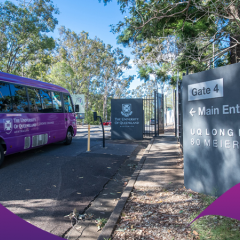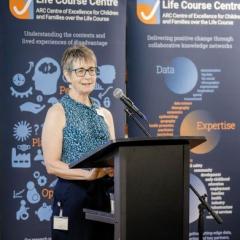Water disinfection by chlorination is one of the most effective measures to safeguard public health – but some studies have indicated that chlorination by-products may be associated with adverse birth outcomes.
Emerging global evidence on the by-products of water disinfection by chlorination has shown a possible association with adverse birth outcomes, highlighting a need for evidence-based policies and practices for supplying safe water. Trihalomethanes (THMs) are often the main culprit, which is of particular concern in Australia where guideline values for THMs in drinking water are 2-3 times higher than those of other developed countries.
 In Queensland, some rural and remote towns report repeated and prolonged episodes of exceedances of the drinking water guideline value for THMs – some of which also have a high prevalence of adverse birth outcomes. For example, the rate of low birth weights in the Mount Isa region is double the state average.
In Queensland, some rural and remote towns report repeated and prolonged episodes of exceedances of the drinking water guideline value for THMs – some of which also have a high prevalence of adverse birth outcomes. For example, the rate of low birth weights in the Mount Isa region is double the state average.
To fill the current evidence gap, ISSR researchers, in collaboration with UQ’s Queensland Alliance for Environmental Health Sciences, are undertaking a project that will produce the first Queensland evidence-based recommendations for revision and implementation of policies and practices to ensure THMs risk minimisation for pregnant women.
This four-year research program is being undertaken in close partnership with Queensland Health and the Western Queensland Primary Health Network, and is funded by the National Health and Medical Research Council (NHMRC) under its Partnership Projects scheme.
The research will systematically analyse the currently available evidence; review current policies and practices to identify opportunities for intervention; conduct spatial-temporal analyses of THM levels in Queensland; link THM data with the Queensland Perinatal Data Collection; and, and conduct two case studies in communities where there is a history of elevated THMs in drinking water.
The ultimate outcome will lead to the implementation of revised strategies to minimise THM exposure in pregnant women, and it is hoped that the research will assist the project partners influence policy and practice changes, by:
- advocating for a revision of the Australian Drinking Water Guidelines value for THMs in drinking water, where this is supported by the evidence.
- improving arrangements for THM compliance monitoring and reporting to support early action to prevent exceedance of guidelines.
- effective engagement with key stakeholders to minimise exposure of pregnant women in the event of THM exceedance in high-risk areas.
By further investigating the possible role of THMs in adverse birth outcomes, the ISSR team hopes to assist drinking water providers take positive steps to reduce concentrations of these contaminants in drinking water and contribute to the Queensland Government’s key priority to “Give all our children a great start[1]”.
Project Team: Associate Professor Abdullah Mamun, Professor Peter Sly, Dr Yaqoot Fatima, Professor Leonie Callaway, Professor Kevin Thomas, Associate Professor Fran Boyle.
Partners: Queensland Health (Water Unit, Metro North Public Health Unit, Women’s and Newborn Services, Metro North Hospital and Health Service), Western Queensland Primary Health Network.



